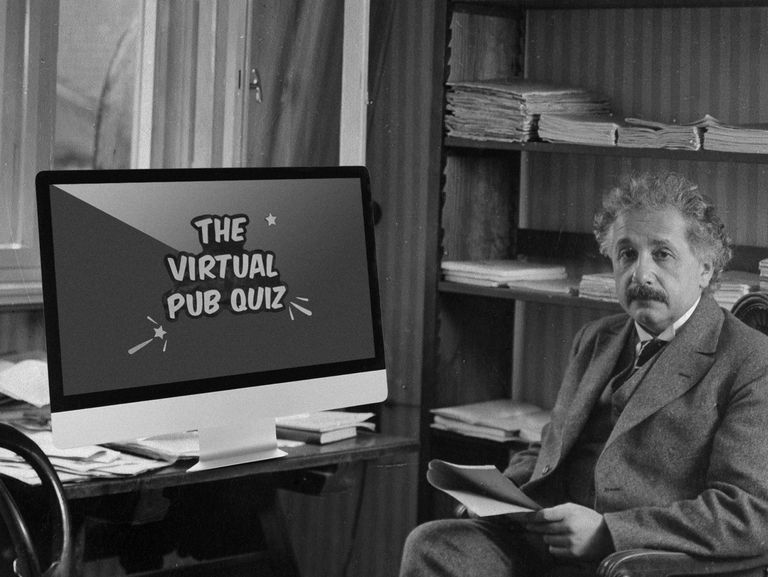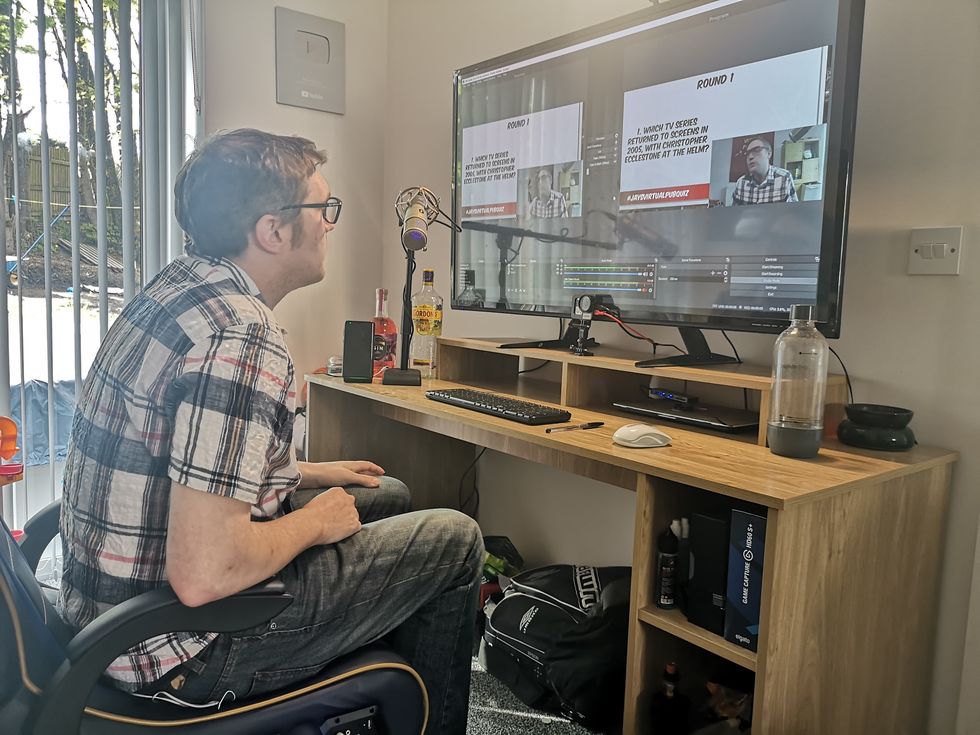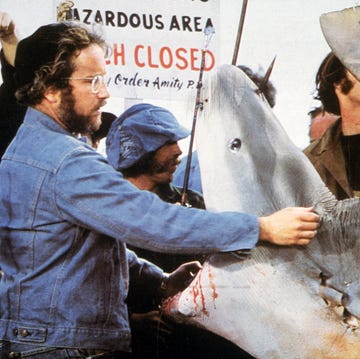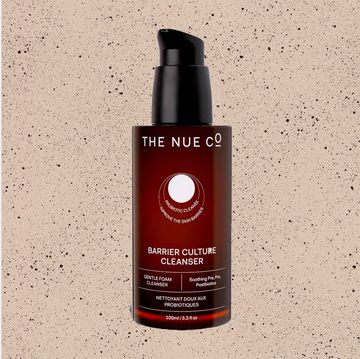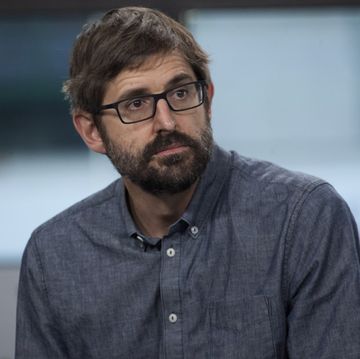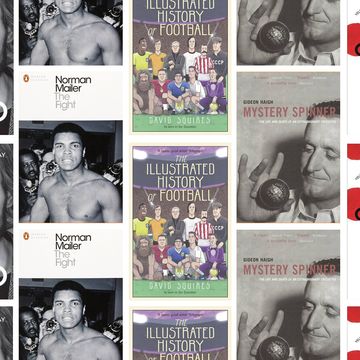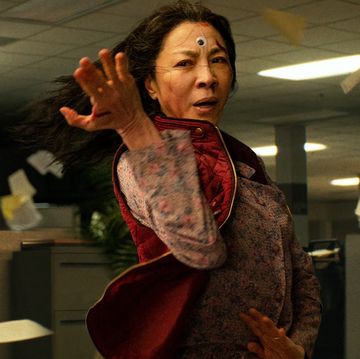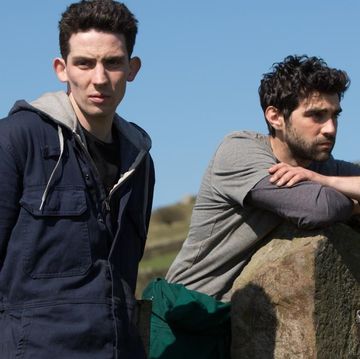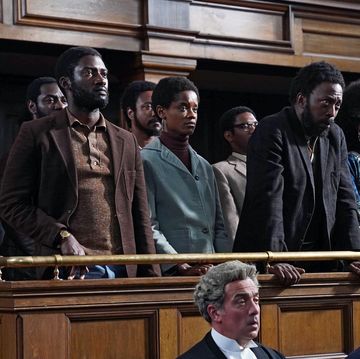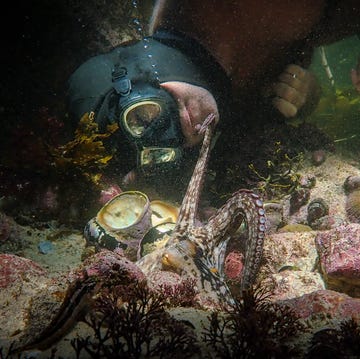When Jay Flynn gave the keys to The Crown pub on Redearth Road in Darwen back to the brewery who owned it on 3 March, it was with regret. For 11 months Flynn and his business partner had tried to resuscitate the flagging community watering hole, which had been dormant for two weeks before they took it over in 2019. “There was no social media presence. All the regulars had disappeared to other venues. We basically just started off with a shell of a pub and no customers,” he admits.
Flynn and his partner had put blood, sweat and tears into the pub – literally. The publican impaled his hand between his thumb and first finger with a pair of scissors while trying to do some wiring on an abandoned function room they planned to turn into an escape room to draw in customers. The blade severed a nerve, resulting in a trip to A&E and a scar that still shows today. Having to hand back ownership was a double-blow, because Flynn had long wanted to run his own pub. He’d helped out at one owned by his wife’s cousin, managing it for six months. “I love working in pubs,” he says, “because you never know what day you’re going to get and who’s going to walk through the door.”
In those 11 months, Flynn had managed to bring back some of those who had abandoned The Crown in its dormant phase, and introduced new regulars too with a weekly pub quiz, held on a Thursday night. There’d be a core of 10 teams who competed for the prize – not just the bog-standard gallon of ale, but the opportunity to gamble it and win money in a Deal or No Deal-style game. The quiz, too, wasn’t normal: there were bingo rounds and other innovations Flynn introduced to separate himself from the competition.
But by early March, Flynn had lost his pub, and soon the country would lose them too. When Boris Johnson announced a nationwide lockdown in late March, pubs were closed by fiat. Initially they weren’t shut outright, but their patrons were told not to visit. Eventually, a prime minister famed for trying to shirk tough decisions realised he would have to formally close them. The pub quiz could have gone with it – were it not for Britons’ love of answering pointless trivia questions.
The first pub quizzes were established in the post-war years of the 1940s and 50s, organised by Mother’s Unions and Women’s Institutes in rotary clubs and civic centres to try and distract men scarred by war from drinking away their sorrows. Participants were quizzed on their knowledge of local history. “It was wholesome subject matter in wholesome places,” says Alan Connor, author of The Joy of Quiz, a book on Britain’s history with quizzing.
Soon, the men taking part realised they could transplant the bit they enjoyed – testing their general knowledge – away from the bit they didn’t: the overly Methodist surroundings. The pub quiz was born. However, it took another half a century for the pub quiz to become a cultural phenomenon, exploding in the 1980s and 90s thanks to an enterprising publican called Sharon Burns who standardised the production of pub quiz materials. Her packs, containing publicity documents, league tables and quizzes that had verified questions and answers, were an easy way for pub owners to fill their establishments in the quiet weekday evenings. (Burns ended up retiring and owning a drive-thru fast food outlet, another thing we’re missing in the coronavirus era.)
Brits lapped up quizzes, in part because of the friendly, semi-joking rivalries between peers within the community and the opportunity to congregate together. We also enjoyed the ability to look smart and be tested on information we’ve held in our heads since our schooldays. And even though the pubs were shut, it seems we’ve been unable to shake the need to be tested on our knowledge of late 1980s one-hit wonders. People have taken to Zoom to host their own digital pub quizzes, trying to recapture some semblance of a morose Tuesday evening stood queueing at the bar for a lukewarm pint of bitter. Yet the most popular digital pub quiz steers away from Zoom entirely. Instead, it’s held twice-weekly on YouTube, where 180,000 people take part simultaneously. It’s had questions submitted to it by Boris Johnson, and questions posed by Stephen Fry. Gary Barlow has provided the half-time entertainment. And it’s run by Jay Flynn out of the front room of his home in Darwen, Lancashire.
The idea came the day after Britain shut its pubs down. Flynn had left his pub behind three weeks earlier, but still wanted to provide something for the dedicated teams who turned up every Thursday night to The Crown. He created an event on Facebook for a digital pub quiz he planned to hold on a Saturday, and went about his weekend. Little did he know he had configured the event incorrectly, meaning that it wasn’t just Flynn’s friends who could see and join the event, but the entire world.
He was sat in his work at a car dealership on the following Monday when his phone pinged with a Facebook Messenger notification. The face of someone he didn’t know appeared in a circle on his screen; when he tapped it to open the conversation, they were asking for more details about the quiz he was hosting that Thursday. Flynn went on Facebook and looked at the event. There were 800 people interested. He showed the screen to his boss, who bet him he’d have a thousand people interested by the end of the day. When he left the dealership at 7pm, told by his employer that they’d be closed for the foreseeable future due to the coronavirus, it was 10,000. His boss then said it’d be 20,000 by the following morning. When Flynn pulled up outside his home – a 20-minute drive from work – it had reached that number. By Tuesday morning, it was 100,000. Later that day it was 250,000.
Flynn realised he now had some work to do. “Thankfully it worked out nicely that I had a few days to put the quiz together and work out how I was going to do it,” he says. “At that point, if I’d still been in work, I’d never have had the time to think about it.” As those publicans who took solace in the pre-packed, pre-vetted question lists provided by Sharon Burns know well, producing a quiz that’s challenging enough for experienced quizzers while being easy enough for anyone to pick up is difficult. Especially when you don’t know your audience, and that audience is thousands of people.
Flynn would rather the questions were harder, with teams scoring 25 to 30 out of 50, rather than the 35s, 40s and 45s some do now, but he’s playing to a different audience than The Crown. It’s a disparate one, scattered all over the country and all over the world. Some, including one group of seven houses in a close who’ve dubbed themselves The Firepitters, decamp to their front drives and watch Flynn’s Virtual Pub Quiz on a giant screen projected on the side of one of the houses. “Seeing things like that is great,” says Flynn. “It’s brilliant to see what this community has created.”
The quiz master’s prime position, sat in front of a banner made by his wife and his business partner, a qualified graphic designer who moved in with the Flynn family when The Crown closed, is a far cry from where he was just a decade or so ago.
Rather than a cosy, comfortable home in Darwen, Flynn’s address back then was Number 3, Riverside View, Victoria Embankment, London. Look it up on Google and it doesn’t exist; that’s what Flynn christened the second bench along from Embankment train station on which he slept every night for two years. (The reason it was number three was the British street numbering system of odds and evens on either side of the street. The first bench in Flynn’s mind was number one: his spot was three.)
“I epitomised the general definition of homelessness,” Flynn recalls. He didn’t have an alcohol problem, he didn’t have a drug problem. His life had just taken a few turns – a breakup here, loss of a job there – and he ended up on the streets. “I’d run out of favours to call on, and me being myself, I didn’t want to ask anyone for help. I’m the cliché of: ‘You’re one or two paycheques away from not having anything.’” Flynn didn’t spend much time at Number 3, Riverside View: acutely aware that his presence in a high-tourist trafficked area could cause him embarrassment, and not wanting to be pandered to or looked down upon, he was awake and his few belongings packed up and slung over his shoulder by 7am most mornings. “I didn’t want them to think here’s another homeless man on the streets who has a problem.” Instead, he’d walk for 16 or 18 hours a day around the capital, stopping only to answer questions looking for directions to Leicester Square. He’d occasionally find a pound or two on the street, and buy himself custard creams, which he says he survived on for nearly two years.
Flynn’s itinerant schedule was why it took The Connection at St Martin’s, a charity that aims to house and help the homeless, two years to find him. He woke one morning to a card tucked under his head by a keyworker. It took him three days to drum up the courage to walk through the door. When he did, he was given a voucher to buy hot food in the café there, and had his first decent shower in two years. In the workspace upstairs, he was helped to apply for his birth certificate so he could apply for benefits, and given a crisis loan by the local job centre. In his hand he had a Giro cheque for £93 – “the most amount of money I had for a good couple of years,” he says. ”It felt like I’d won the lottery.” That support, and the help the charity gave Flynn to restart his life, move to Lancashire and end up working for Sainsbury’s, is why he’s raising money for the cause through his quizzes. He’s made £30,000 so far.
In all, Flynn has raised nearly £400,000 for different charities from his Thursday and Saturday night quizzes, and has added a roster of other quizzes throughout the week. As well as gaining the attention of the public, Guinness World Records, the prime minister and a clutch of celebrities, Flynn has also come in front of the eyes of YouTube. “Pub quizzes are so quintessentially British and truly a wonderfully unique part of our culture,” says Ben McOwen Wilson, the site’s UK managing director. “Seeing them come to life on YouTube has been fantastic and shows that no matter the circumstances, British culture and creativity will always find a way to shine through.”
And when the dark days of Covid-19 disappear and the bad memories fade away, Flynn is determined that his pub quizzes won’t vanish with the virus. “Without a doubt this will continue after lockdown,” Flynn says. He’s set up a Patreon scheme, to which more than 4,000 people have already pledged for him to continue his career as a quiz master. When the digital world begins to cede to the physical one once more, and when we’re allowed to pull up a stool and nurse a pint in our local watering hole, Flynn plans to be there. “We like the idea of presenting it live from a different pub every week,” he says. “It’s still on YouTube, still exactly the same format, but we’re in the Coach and Horses in Norwich, or the Dog and Duck in Wimbledon – wherever it might be.”
That’s not all, either. Losing the pub he’d long dreamed of owning in early March had Flynn browbeaten, and like many in the country the initial shock of lockdown got him lower. But the runaway success of the Virtual Pub Quiz rejuvenated his interest and showed that there’s an appetite amongst the public for quizzes. He wants another shot at it. “My ultimate aim, and I haven’t started talking to people about it yet,” he sheepishly admits, “is in a couple of years’ time to get a bar again, but have it be a trivia bar.” There’d be a big live quiz on a Thursday night, augmented by mini-quizzes throughout the week, and board games for the daytime. Put it in a touristy spot and there could be a market for that, Flynn reckons. “My wife thinks I’m mad, as always,” he says. “But you know, she supports me with whatever madcap schemes I come up with.”
Like this article? Sign up to our newsletter to get more delivered straight to your inbox.
Need some positivity right now? Subscribe to Esquire now for a hit of style, fitness, culture and advice from the experts
